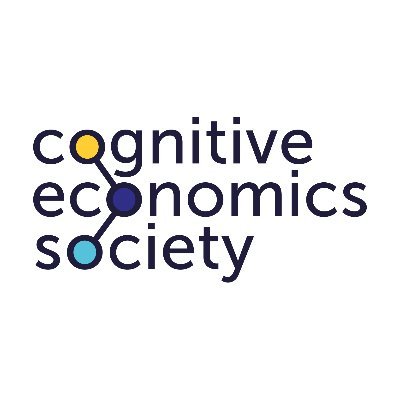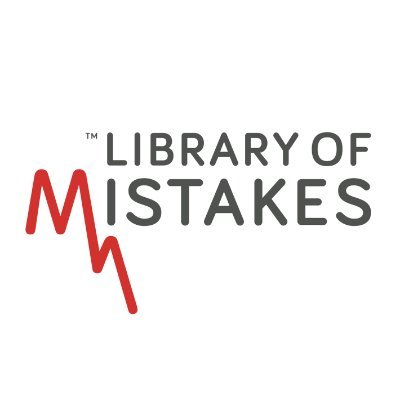#cognitiveeconomics search results
#BehavioralInsight #CognitiveEconomics #PerceivedInflation #HopeEconomics #MoralEquilibrium #EconomicPsychology

Imagining what life (and i) will look like 🎵”when I’m 64” makes me more likely to save more for my retirement. How come? It’s the Economics of the mind, of thought and imagination. It’s #cognitiveeconomics: buff.ly/2roJFfK

Blogged: Master of our thoughts—we can choose to find out what we want to know, and choose not to find out what we don’t want to know, but can we also choose to ignore what we know? buff.ly/2AOyjqs #CognitiveEconomics
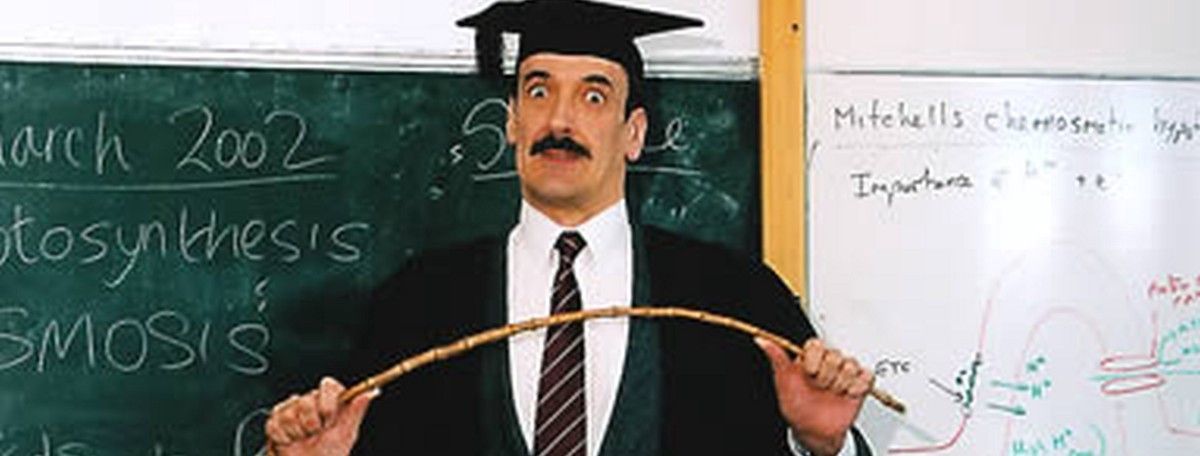
Blogged: It's (almost) all about emotions—how emotions are, contrary to what is sometimes claimed, central to most economic decisions we make: buff.ly/3fSiygJ #CognitiveEconomics

When we try to understand human behaviour and decision making, we should not overlook how thought, not just information, influences us and can even have monetary value: buff.ly/2z8UxlQ #cognitiveeconomics
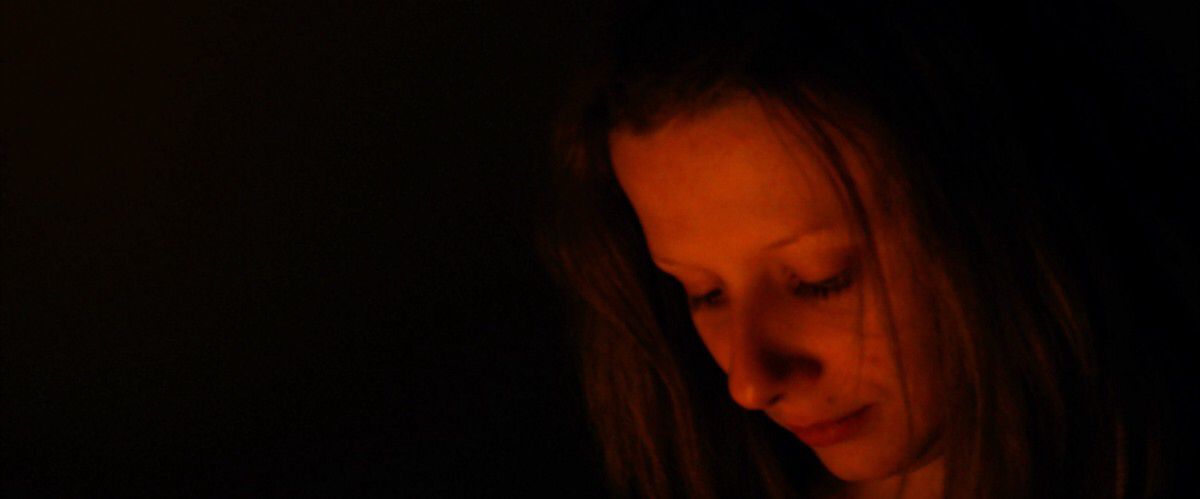
Thoughts not only influence how we make (economic) decisions, but can also be the very subject of them. Last call for my post on the Economics in our thoughts—about the economics *of* the mind, and *in* the mind, or indeed #CognitiveEconomics: buff.ly/2roJFfK
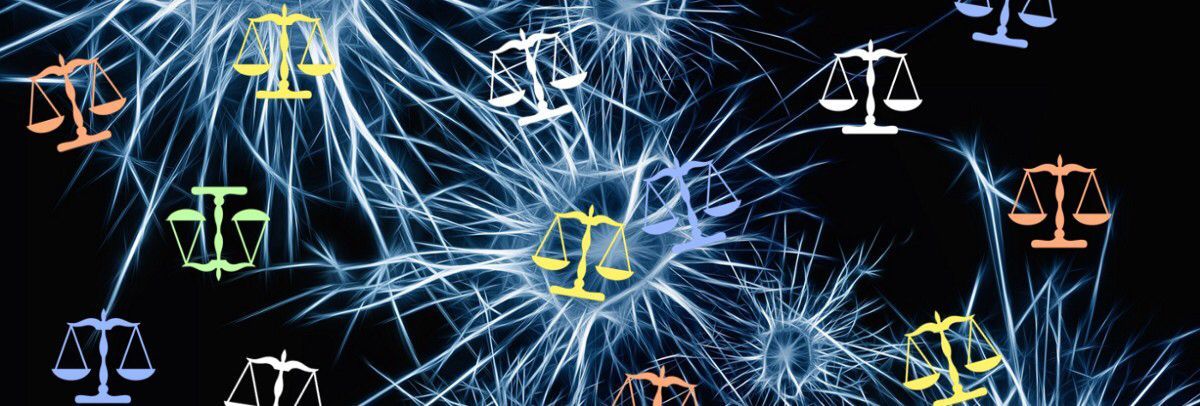
Can we be truly master of our thoughts, and decide what we do, and do not think about? Or is it precisely because we cannot do that, that we are willing to spend money and effort to avoid information? buff.ly/2AOyjqs #CognitiveEconomics
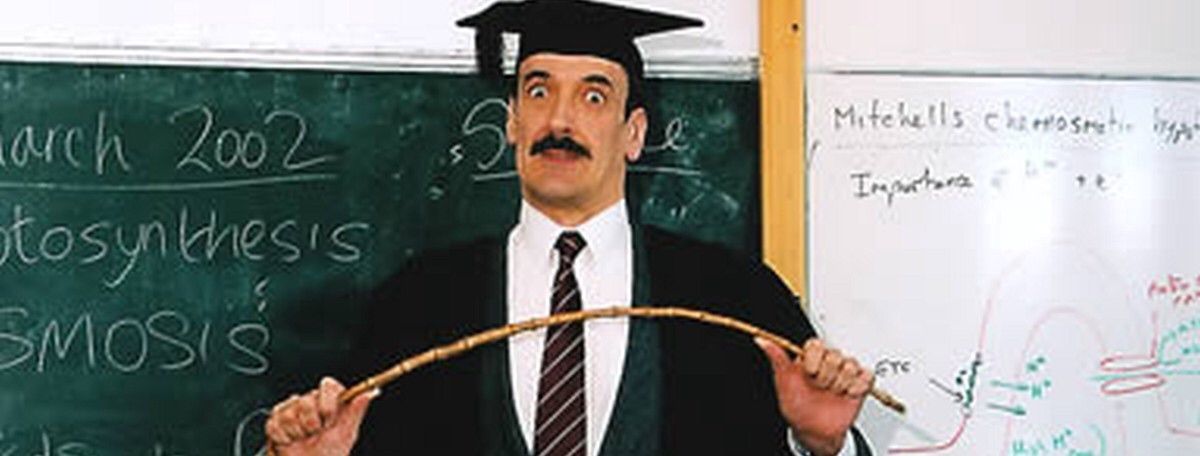
One last plug for my post on the ubiquity of emotion in economic decision making—from the mundane (like putting money in a savings account) to the lofty heights of #CognitiveEconomics of deciding whether or not to share some juicy gossip: buff.ly/3fSiygJ

We've been pretty quiet for the past couple of months (something to do with a certain virus...) But we've kept going behind the scenes and now we're back! Introducing the #CognitiveEconomics #VirtualConference It's free to attend so get booking: bit.ly/VirtualCogEcon…
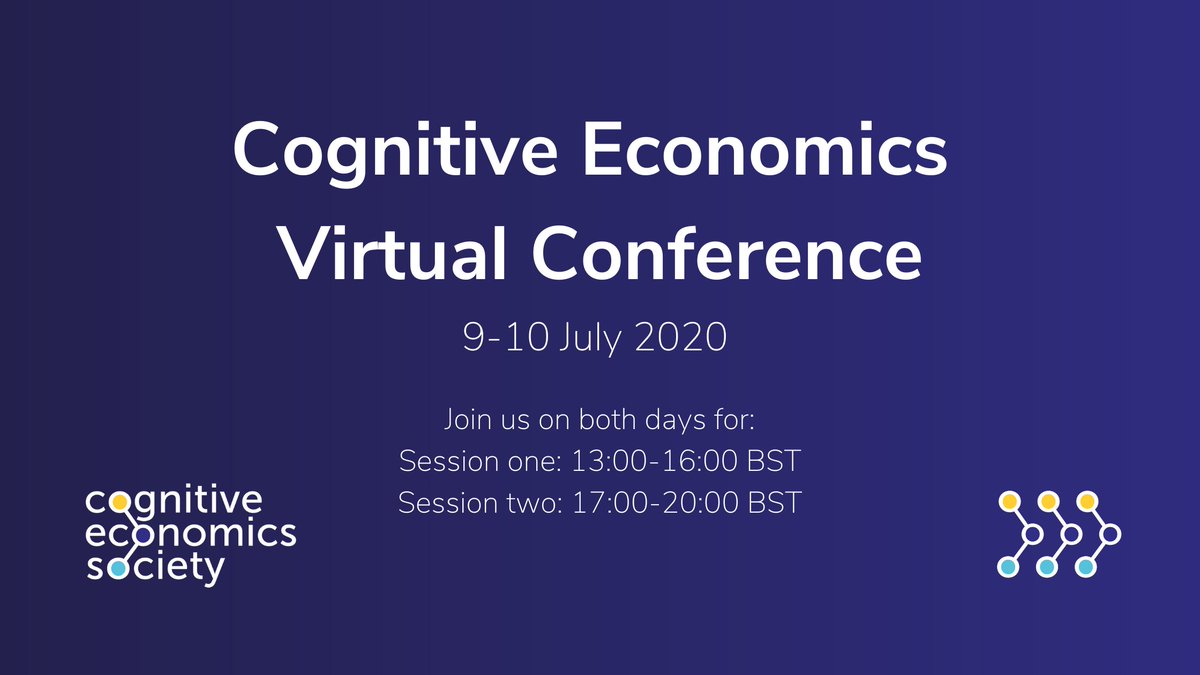
When the scarcest resource is attention rather than money, how does economic analysis change? Our amazing speakers will be providing their answers & more at the #CognitiveEconomics #VirtualConference 9-10 July. Register here: bit.ly/VirtualCogEcon…
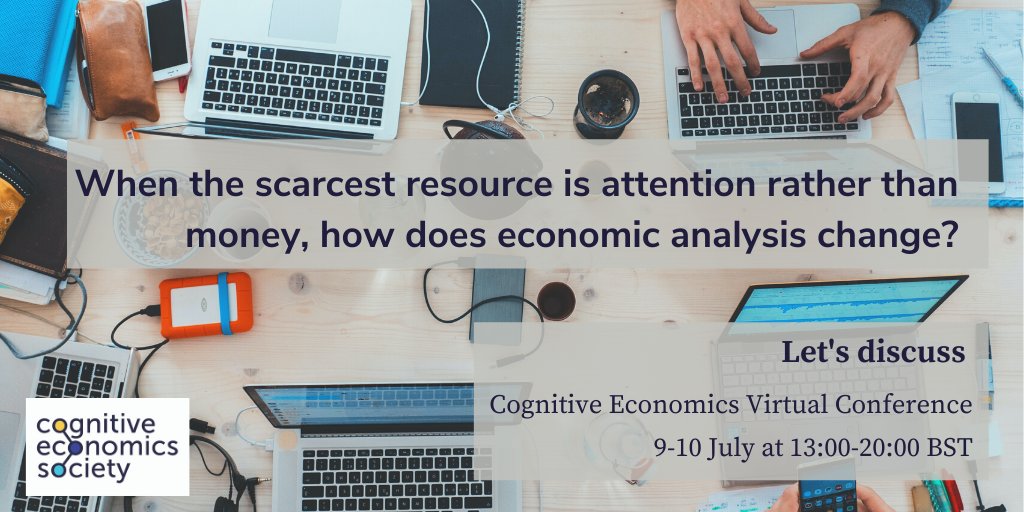
And last but not least, our final Keynote Speaker 🗣️ for the #CognitiveEconomics #VirtualConference is Daniel Read @danielmabuse. Daniel is a Professor of #BehaviouralScience and will be talking about ‘Choosing not to know, choosing not to tell’. Sign up bit.ly/VirtualCogEcon…
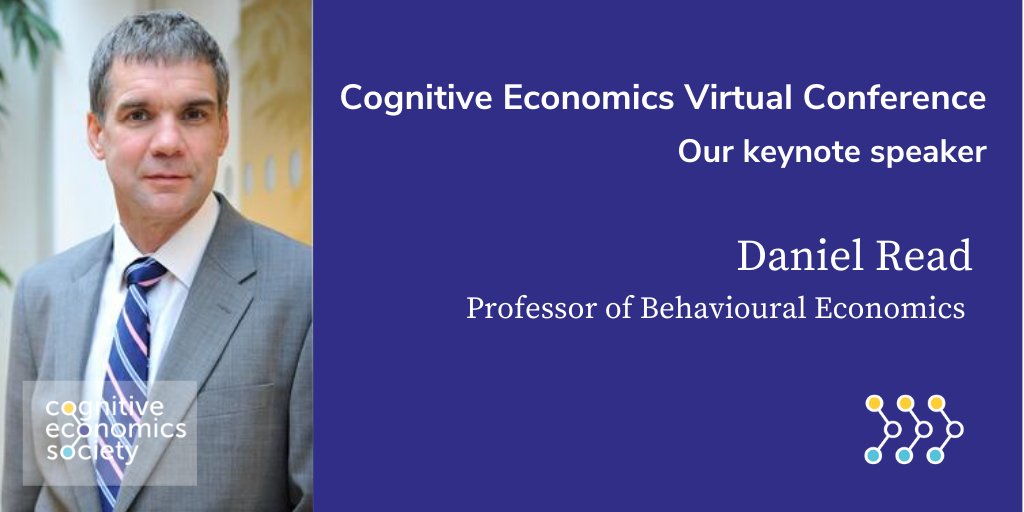
We are not complete slaves to present bias—cool paper by @adamdbulley et al suggests we not only deliberate over intertemporal choices, we even sometimes *prefer* to delay a pleasant experience: buff.ly/2xaefwA cc @cogeconsoc @leighblue #cognitiveeconomics
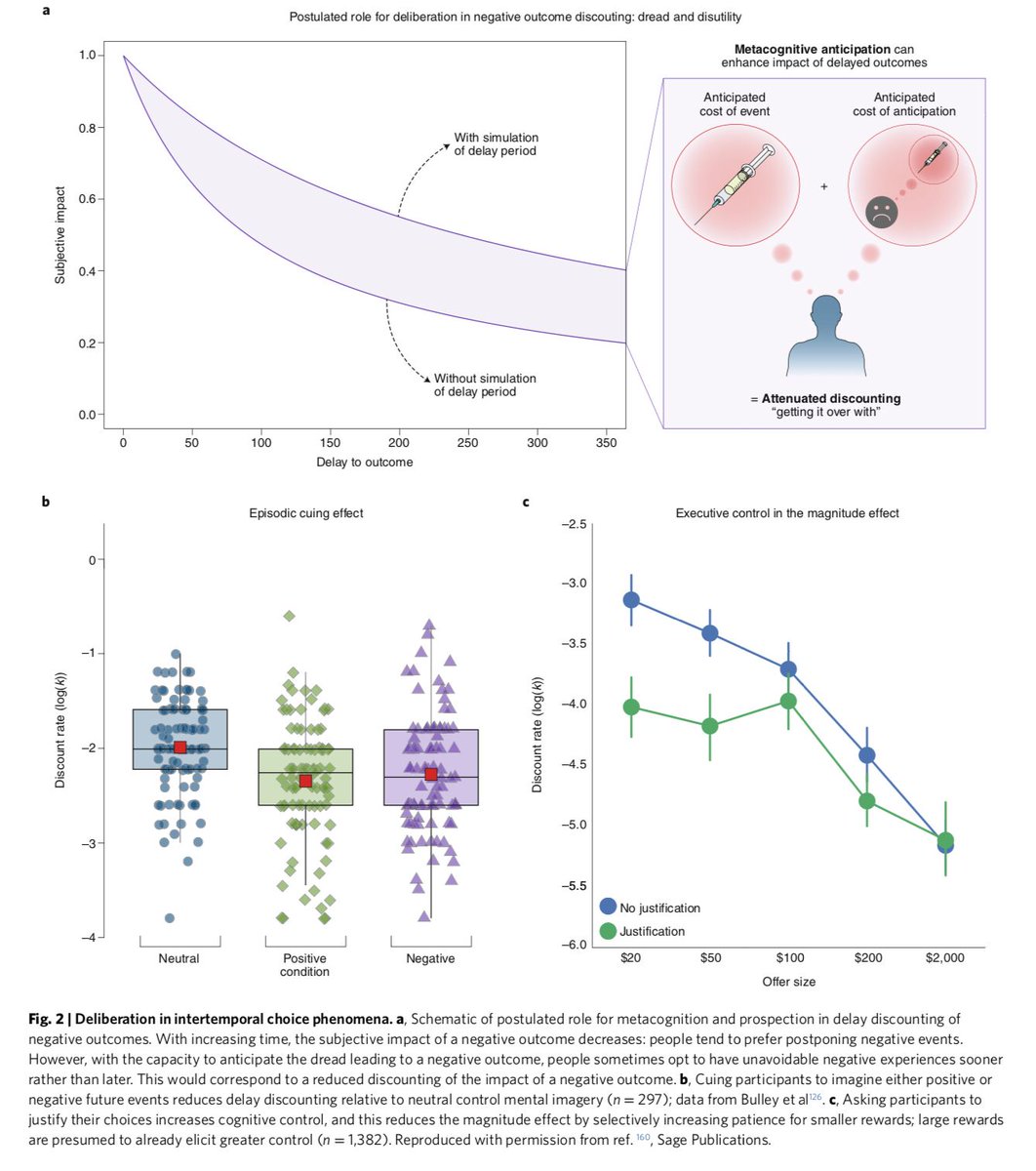
With our current pandemic related concerns, we seem to have forgotten about other scary things, like terrorism. In this week's podcast, we discuss if we should be concerned by our lack of worry. #decisionmaking #cognitiveeconomics #anxiety #worry lnkd.in/gbvASJ4
Delighted to announce @rorysutherland as one of our Keynote Speakers 🗣️ for the #CognitiveEconomics #VirtualConference. Talk title: “"The science of knowing what economics is wrong about - with a small nod to the question of ergodicity". Sign up now: bit.ly/VirtualCogEcon…
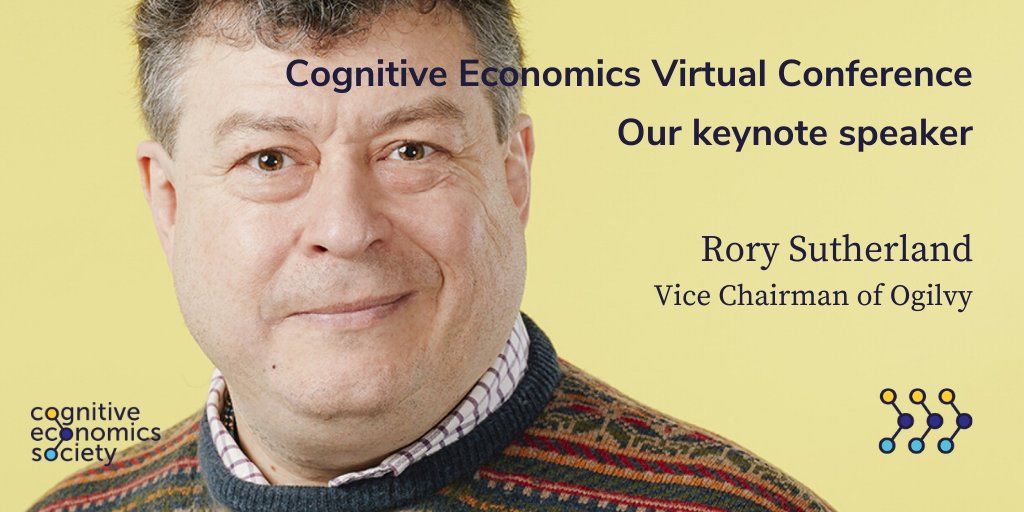
We are delighted that TALI SHAROT from @affectivebrain is one of our Keynote Speakers 🗣️ for the #CognitiveEconomics #VirtualConference on 9-10 July, 13:00-20:00 BST. Tali will be speaking on “How people decide what they want to know". Sign up here: bit.ly/VirtualCogEcon…
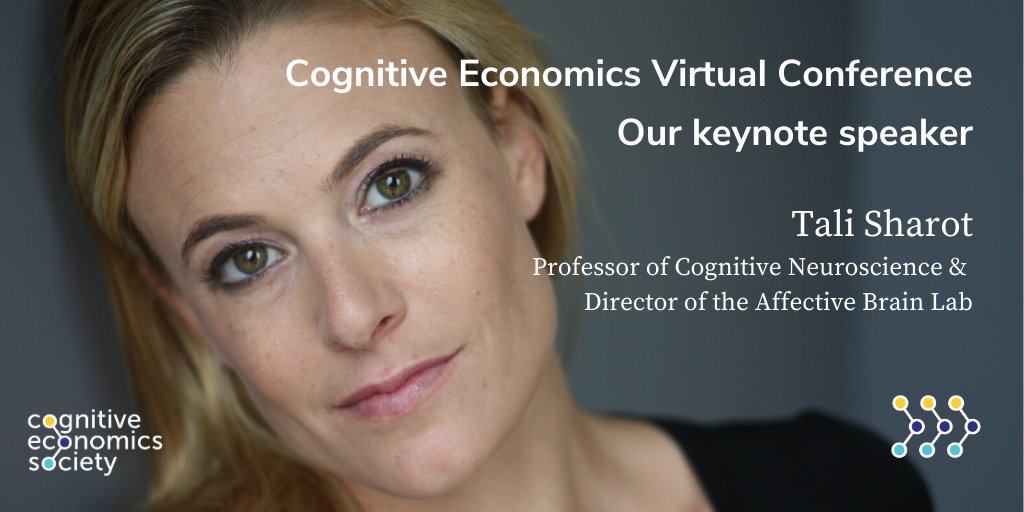
Paying to *avoid* being in others’ “thoughts and prayers”—research by @LThunstrom and @shiri_noy finds atheists exhibit a negative willingness to pay for the prayers of priests or religious strangers: buff.ly/32LP0ur #CognitiveEconomics
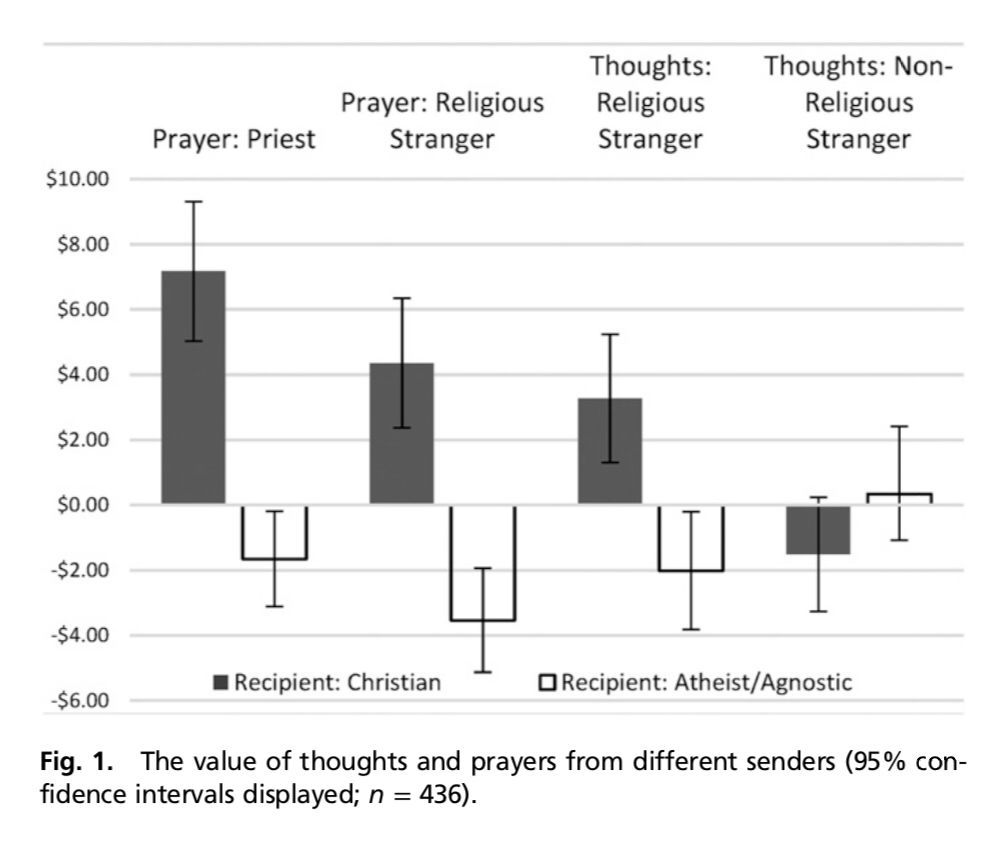
Concluding the 9th set of 20 historical blogposts. #180 returns to #CognitiveEconomics, in particular how we value not just goods or services, but also knowledge and indeed ignorance —“The value of (not) knowing”: koenfucius.medium.com/the-value-of-n…
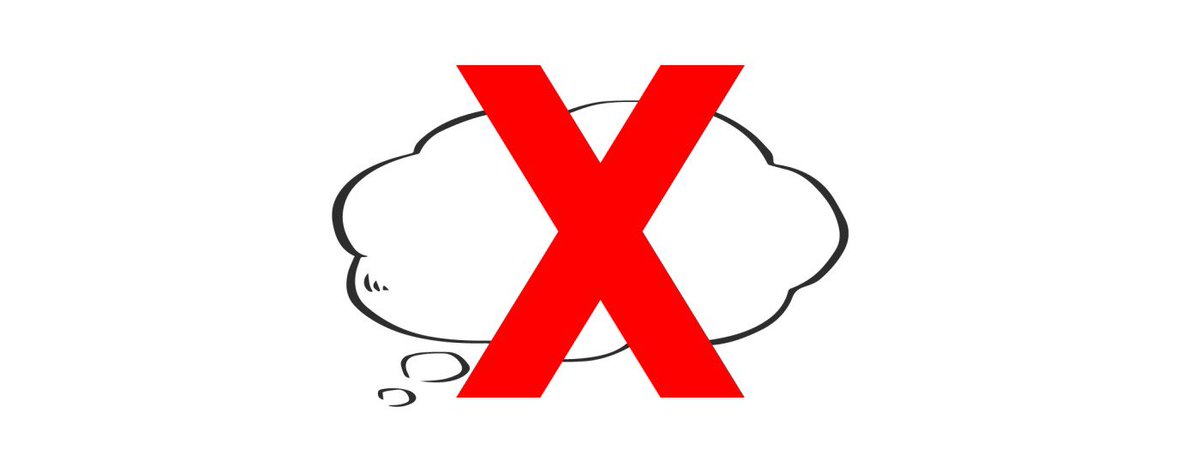
Time (!) for another post from the past—today’s looks at the popular notion that “time is money”. That suggests there is a simple equivalence, but reality is more complex—“How much time is money?” koenfucius.medium.com/how-much-time-…
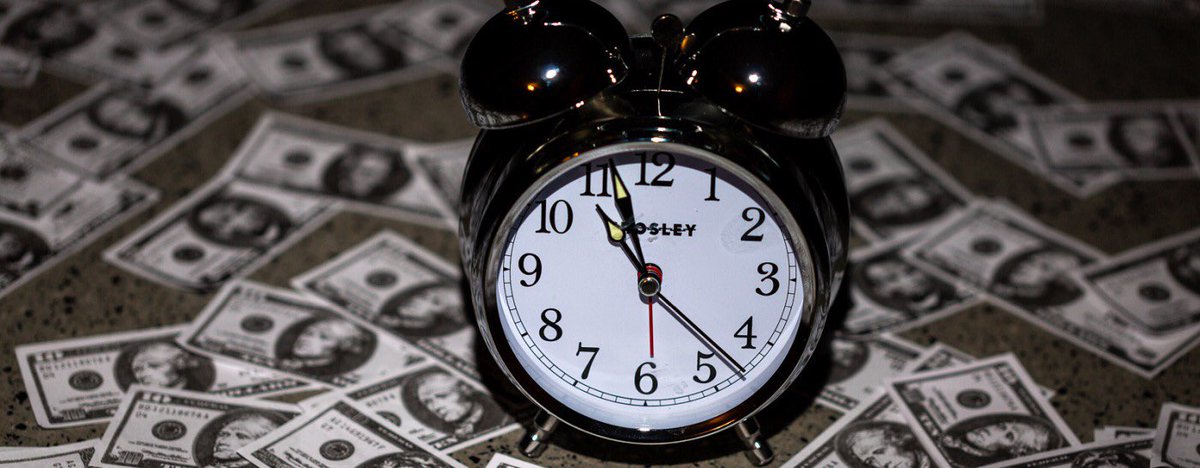
"We should be listening to the stories of all the people around us, and the many people whose stories are not heard in society.” Check out Leigh Caldwell’s interview on the Then Do Better podcast with Ben Yeoh: hubs.ly/Q01jrS5B0 #irrationalagency #cognitiveeconomics
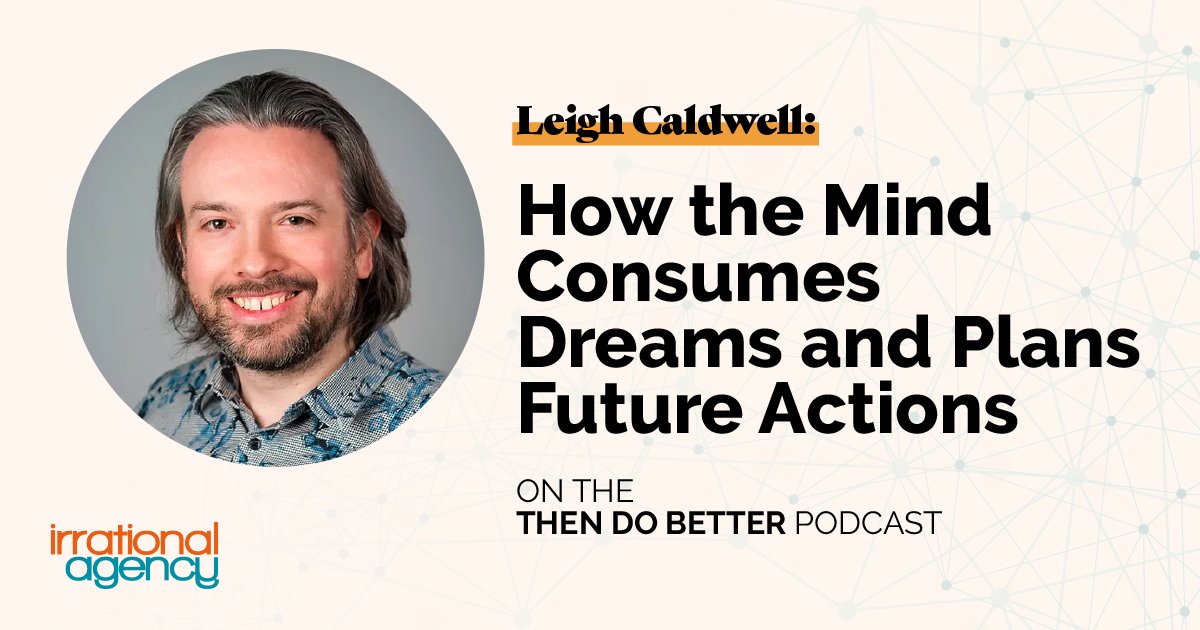
Leigh Caldwell and host Ben Yeoh discuss #cognitiveeconomics, the power of stories, and how the mind can influence future actions on the Then Do Better podcast. Hear the full episode here: hubs.ly/Q01jrPV40 #irrationalagency #marketinginsights #pyschology
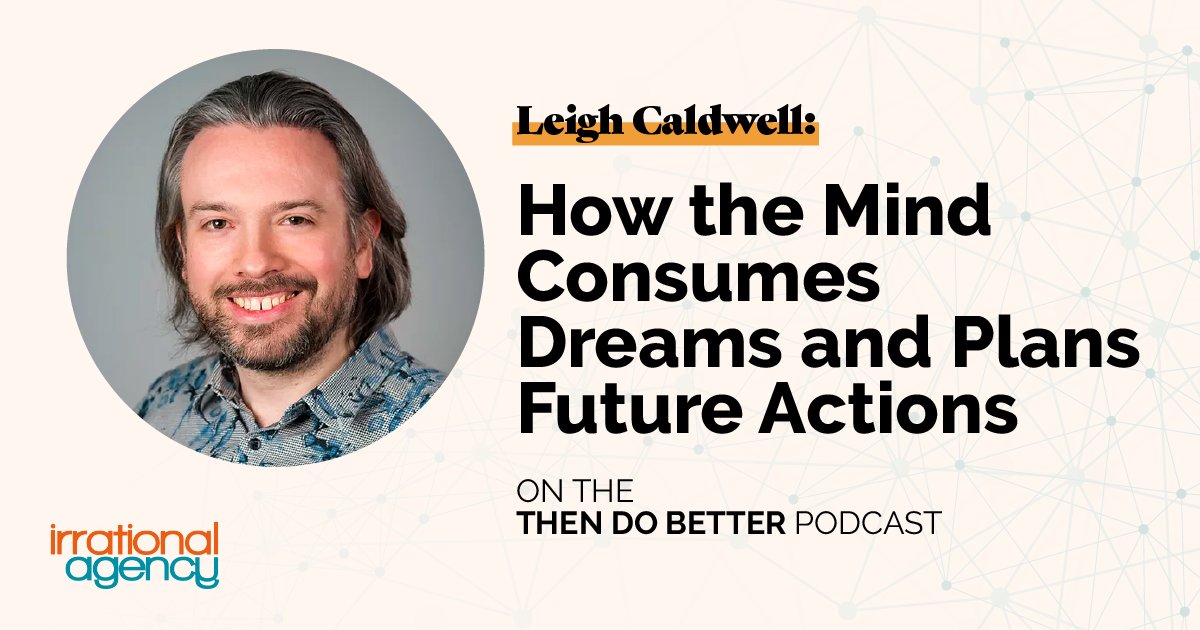
#BehavioralInsight #CognitiveEconomics #PerceivedInflation #HopeEconomics #MoralEquilibrium #EconomicPsychology

🌍 The economy is becoming a cognitive network. Talus Labs defines its grammar of interaction. @Talus_Labs #CognitiveEconomics #AI
We agree! Looking forward to its release in October! For more information, visit degruyter.com/document/isbn/… #DeGruyter #CognitiveEconomics #BehavioralEconomics
Some excellent reading material available from October... #AdamSmith @degruyter_econ linkedin.com/posts/patricks…
linkedin.com
#cognitivescience #economics | Patrick Schotanus | 21 comments
The wait is over. New enlightenment in economics has finally arrived. What can be more appropriate in this year of commemorating Adam Smith? After almost two decades of writing it, my book will be...
"We should be listening to the stories of all the people around us, and the many people whose stories are not heard in society.” Check out Leigh Caldwell’s interview on the Then Do Better podcast with Ben Yeoh: hubs.ly/Q01jrS5B0 #irrationalagency #cognitiveeconomics

Leigh Caldwell and host Ben Yeoh discuss #cognitiveeconomics, the power of stories, and how the mind can influence future actions on the Then Do Better podcast. Hear the full episode here: hubs.ly/Q01jrLY80 #irrationalagency #marketinginsights #pyschology
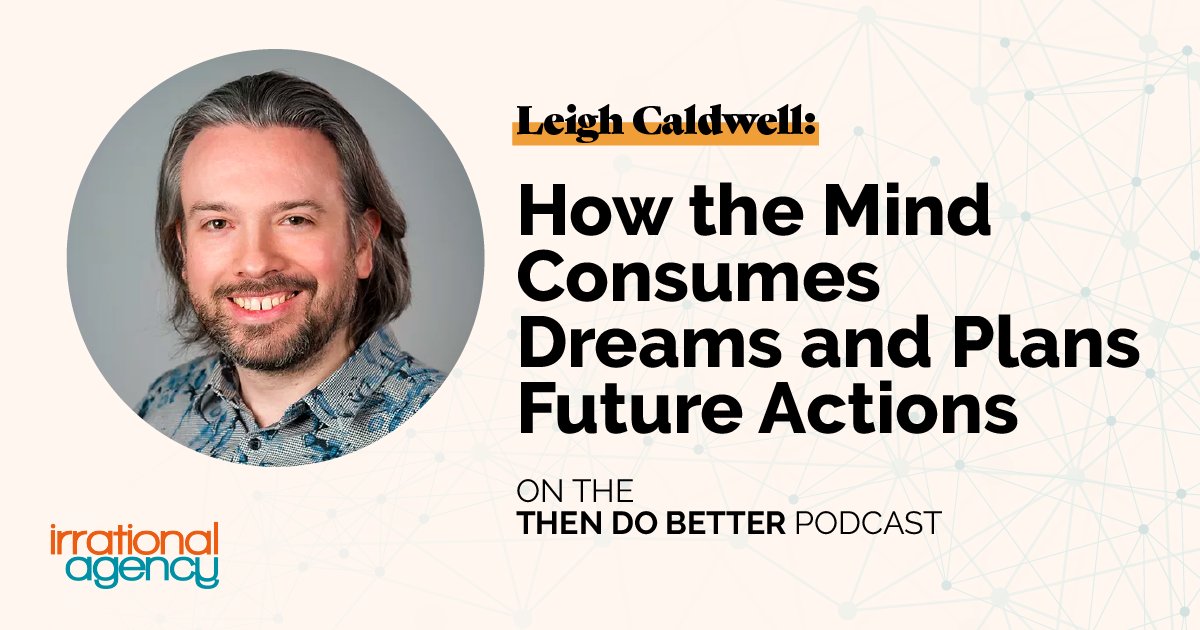
"We should be listening to the stories of all the people around us, and the many people whose stories are not heard in society.” Check out Leigh Caldwell’s interview on the Then Do Better podcast with Ben Yeoh: hubs.ly/Q01jrMPk0 #irrationalagency #cognitiveeconomics
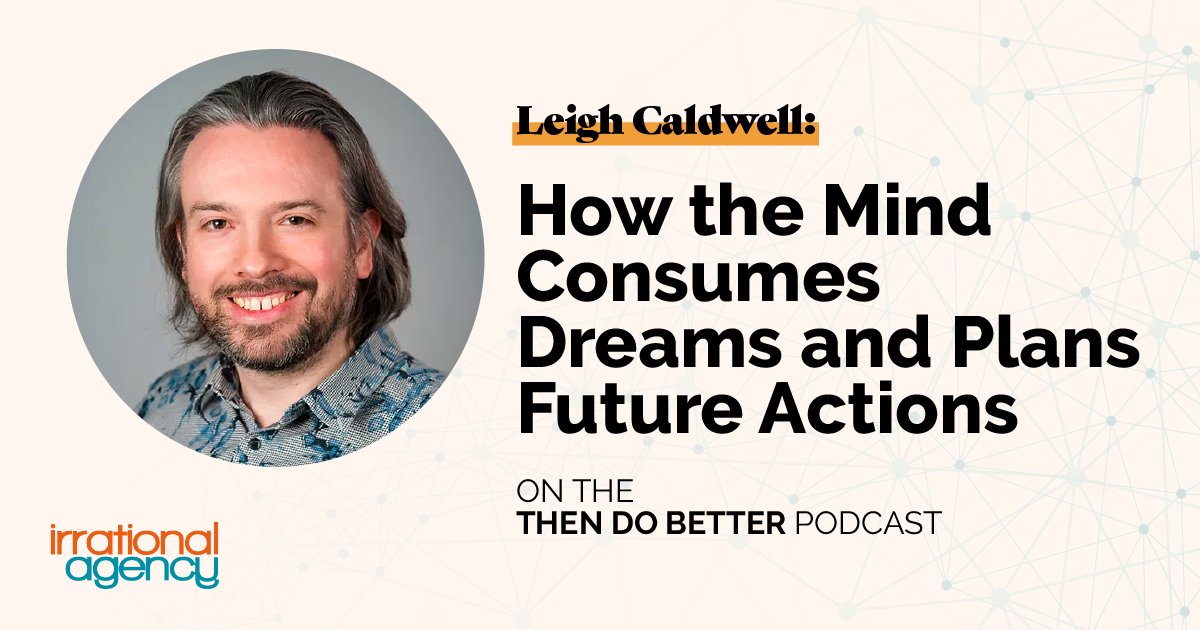
Leigh Caldwell and host Ben Yeoh discuss #cognitiveeconomics, the power of stories, and how the mind can influence future actions on the Then Do Better podcast. Hear the full episode here: hubs.ly/Q01jrPV40 #irrationalagency #marketinginsights #pyschology

Our friends @The_Market_Mind are hosting a fascinating symposium on #CognitiveEconomics today at @AdamSmithHouse @EBS_Global. Join online at zoom.us/j/93921032548?… or find more information at marketmind.org/where-to-watch/.
Our friends @The_Market_Mind are hosting a fascinating symposium on #CognitiveEconomics today & tomorrow at @AdamSmithHouse @EBS_Global. Join online at zoom.us/j/93921032548?….
Really excited to be attending and chairing a session at this summit on the Market Mind Hypothesis, held next week at Adam Smith’s house in Edinburgh. #CognitiveEconomics
We’re excited to announce the agenda for the Market Mind Hypothesis Inaugural Symposium taking place next week. marketmind.org/agenda/ #MMHsymposium #EconTwitter #adamsmith
Concluding the 9th set of 20 historical blogposts. #180 returns to #CognitiveEconomics, in particular how we value not just goods or services, but also knowledge and indeed ignorance —“The value of (not) knowing”: koenfucius.medium.com/the-value-of-n…

Time (!) for another post from the past—today’s looks at the popular notion that “time is money”. That suggests there is a simple equivalence, but reality is more complex—“How much time is money?” koenfucius.medium.com/how-much-time-…

📢 For those of you who missed last night's @UCLBIT seminar featuring @leighblue, mental simulations and the post-COVID19 economy, do not despair! You can read about here medium.com/behaviouralucl… #business #cognitiveeconomics #behaviouralscience #system3 #mentalsimulation
medium.com
Predicting the post-COVID world with neuroscience: a UCL BIT seminar
Of a few given snack products, which is going to be the most successful in the market? When will people start eating out again…
maybe the knowledge that you *could* watch more films in itself provides utility? #cognitiveeconomics
One last plug for my post on the ubiquity of emotion in economic decision making—from the mundane (like putting money in a savings account) to the lofty heights of #CognitiveEconomics of deciding whether or not to share some juicy gossip: buff.ly/3fSiygJ

Blogged: It's (almost) all about emotions—how emotions are, contrary to what is sometimes claimed, central to most economic decisions we make: buff.ly/3fSiygJ #CognitiveEconomics

With our current pandemic related concerns, we seem to have forgotten about other scary things, like terrorism. In this week's podcast, we discuss if we should be concerned by our lack of worry. #decisionmaking #cognitiveeconomics #anxiety #worry lnkd.in/gbvASJ4
Can we be truly master of our thoughts, and decide what we do, and do not think about? Or is it precisely because we cannot do that, that we are willing to spend money and effort to avoid information? buff.ly/2AOyjqs #CognitiveEconomics

On now at #CognitiveEconomics #VirtualConference @eyethinkdcr on creativity and live events using physiological sensors ... (study with @neuro_boffin)
Blogged: Master of our thoughts—we can choose to find out what we want to know, and choose not to find out what we don’t want to know, but can we also choose to ignore what we know? buff.ly/2AOyjqs #CognitiveEconomics

And our final speaker announcement for the #CognitiveEconomics #VirtualConference is Niels Boissonnet – they will be speaking on‘Psychological Reactance, menu-dependence, and Reference Menus’. We can’t wait to hear all our speakers, so SIGN UP now: bit.ly/VirtualCogEcon…
#BehavioralInsight #CognitiveEconomics #PerceivedInflation #HopeEconomics #MoralEquilibrium #EconomicPsychology

What impact could #CognitiveEconomics have on our current aims of economics? @leighblue talks starts putting together some ideas of cognitivising Economics. #CogEconWorkshop
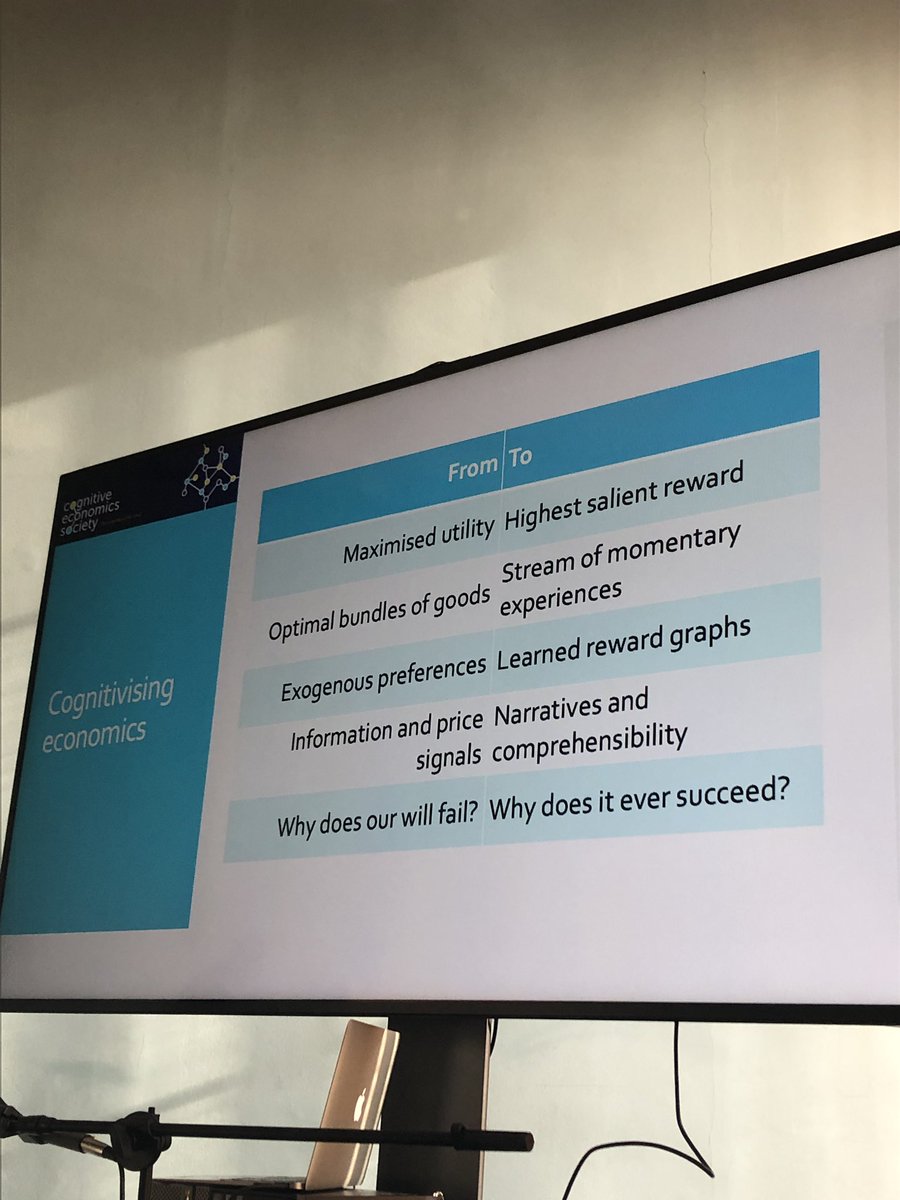
We are excited for our first #cognitiveeconomics workshop. Call for papers and application details can be found on cognitiveeconomics.org.
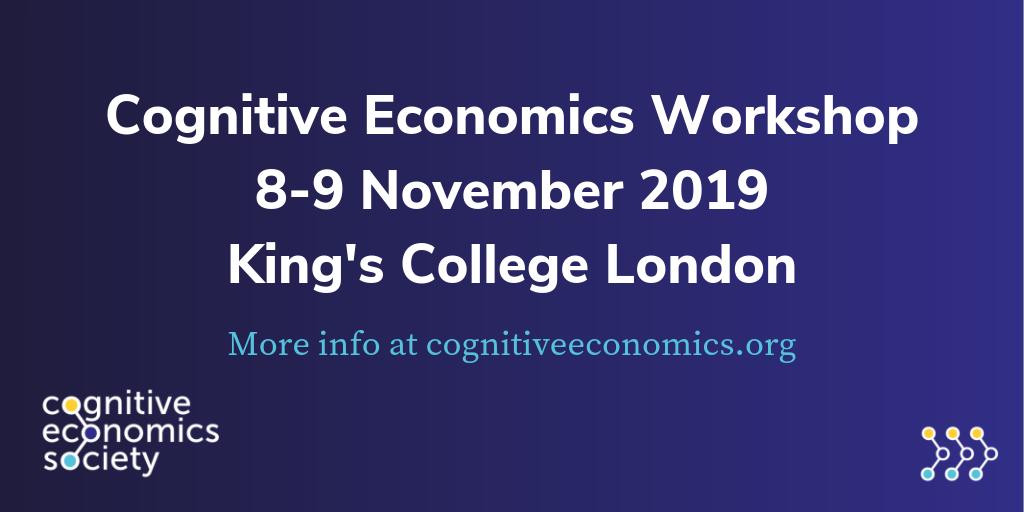
Imagining what life (and i) will look like 🎵”when I’m 64” makes me more likely to save more for my retirement. How come? It’s the Economics of the mind, of thought and imagination. It’s #cognitiveeconomics: buff.ly/2roJFfK

And last but not least, our final Keynote Speaker 🗣️ for the #CognitiveEconomics #VirtualConference is Daniel Read @danielmabuse. Daniel is a Professor of #BehaviouralScience and will be talking about ‘Choosing not to know, choosing not to tell’. Sign up bit.ly/VirtualCogEcon…

#InspirationHub: Behavioral economics and neuroeconomics insights in event management. #CognitiveEconomics with Maksim Godovykh #IMEX17

Blogged: Master of our thoughts—we can choose to find out what we want to know, and choose not to find out what we don’t want to know, but can we also choose to ignore what we know? buff.ly/2AOyjqs #CognitiveEconomics

Today is our deadline for applications for the first #cognitiveeconomics workshop. Visit our website for more info on how to apply: cognitiveeconomics.org/events!
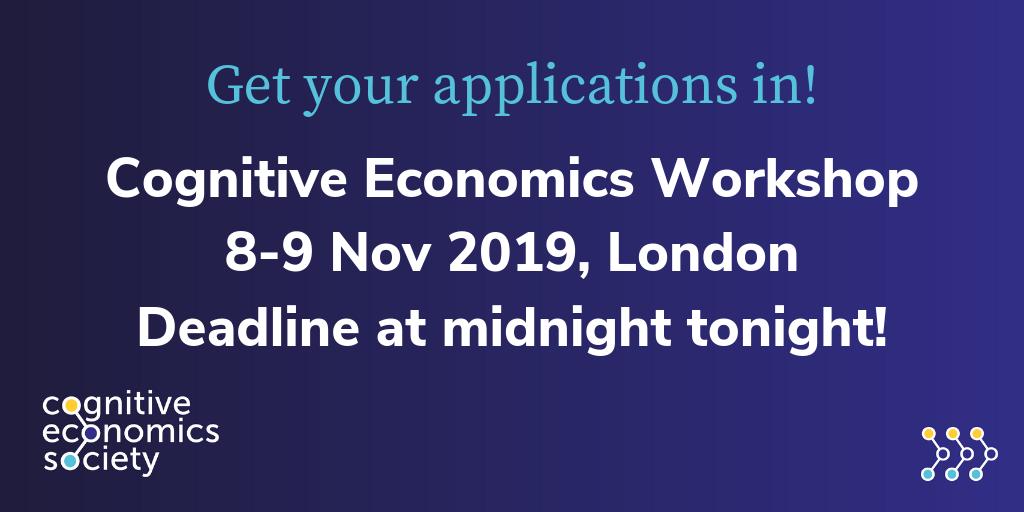
CALL FOR PAPERS: ONE WEEK LEFT #CognitiveEconomics. Exploring the value that people place on their mental states and beliefs, important for marketing, behavioural, narrative & information economics, psychology, neuroscience & more. buff.ly/2XldzPP 👇👇👇
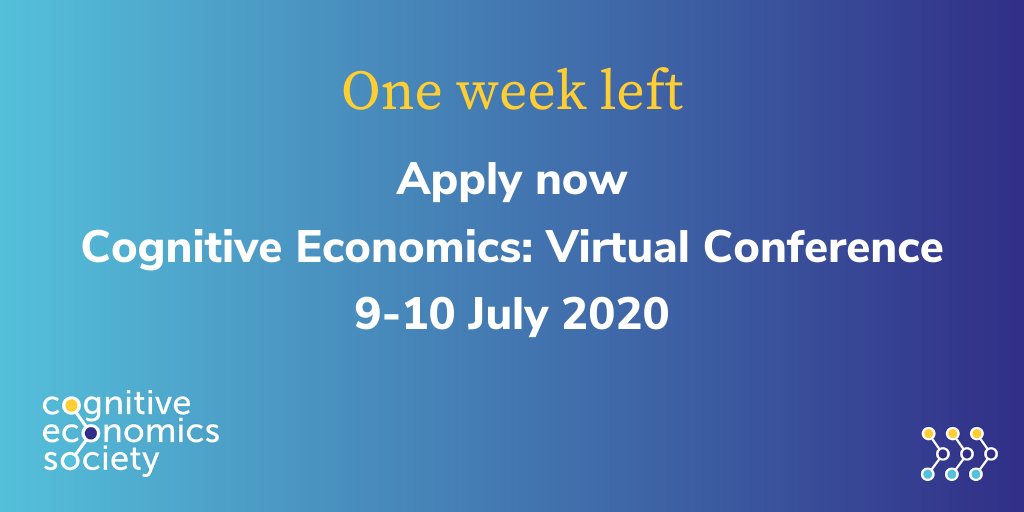
Blogged: It's (almost) all about emotions—how emotions are, contrary to what is sometimes claimed, central to most economic decisions we make: buff.ly/3fSiygJ #CognitiveEconomics

When we try to understand human behaviour and decision making, we should not overlook how thought, not just information, influences us and can even have monetary value: buff.ly/2z8UxlQ #cognitiveeconomics

Can we be truly master of our thoughts, and decide what we do, and do not think about? Or is it precisely because we cannot do that, that we are willing to spend money and effort to avoid information? buff.ly/2AOyjqs #CognitiveEconomics

Thoughts not only influence how we make (economic) decisions, but can also be the very subject of them. Last call for my post on the Economics in our thoughts—about the economics *of* the mind, and *in* the mind, or indeed #CognitiveEconomics: buff.ly/2roJFfK

One last plug for my post on the ubiquity of emotion in economic decision making—from the mundane (like putting money in a savings account) to the lofty heights of #CognitiveEconomics of deciding whether or not to share some juicy gossip: buff.ly/3fSiygJ

Hello all! Due to a cheeky technical error, our call for papers for the first #cognitiveeconomics workshop has now been EXTENDED till Weds 4th September. No excuses now - get your ideas in!: cognitiveeconomics.org/events #economicconferences #econtwitter
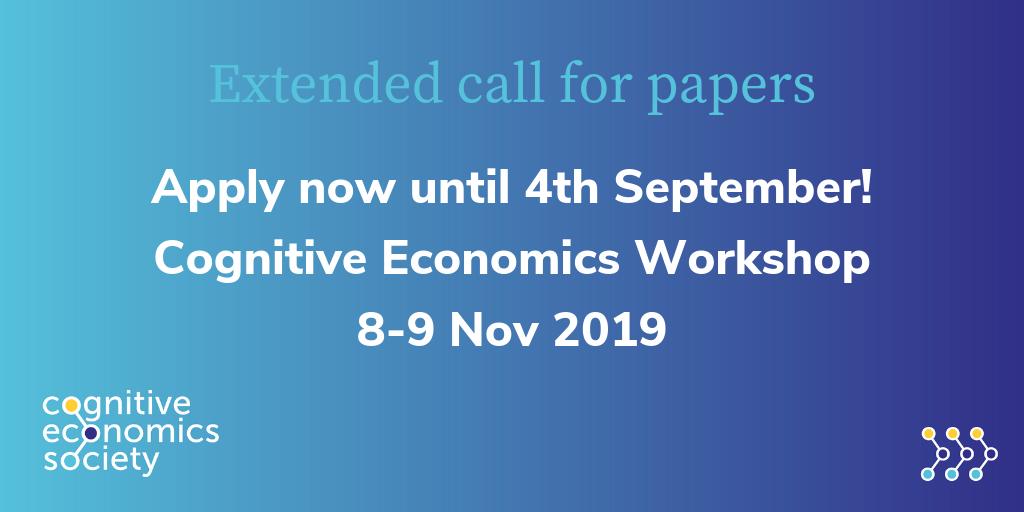
We are not complete slaves to present bias—cool paper by @adamdbulley et al suggests we not only deliberate over intertemporal choices, we even sometimes *prefer* to delay a pleasant experience: buff.ly/2xaefwA cc @cogeconsoc @leighblue #cognitiveeconomics

We've been pretty quiet for the past couple of months (something to do with a certain virus...) But we've kept going behind the scenes and now we're back! Introducing the #CognitiveEconomics #VirtualConference It's free to attend so get booking: bit.ly/VirtualCogEcon…

When the scarcest resource is attention rather than money, how does economic analysis change? Our amazing speakers will be providing their answers & more at the #CognitiveEconomics #VirtualConference 9-10 July. Register here: bit.ly/VirtualCogEcon…

Delighted to announce @rorysutherland as one of our Keynote Speakers 🗣️ for the #CognitiveEconomics #VirtualConference. Talk title: “"The science of knowing what economics is wrong about - with a small nod to the question of ergodicity". Sign up now: bit.ly/VirtualCogEcon…

We are delighted that TALI SHAROT from @affectivebrain is one of our Keynote Speakers 🗣️ for the #CognitiveEconomics #VirtualConference on 9-10 July, 13:00-20:00 BST. Tali will be speaking on “How people decide what they want to know". Sign up here: bit.ly/VirtualCogEcon…

Something went wrong.
Something went wrong.
United States Trends
- 1. Thanksgiving 371K posts
- 2. Golesh 2,074 posts
- 3. Fani Willis 11.9K posts
- 4. Trumplican 2,781 posts
- 5. Hong Kong 78.1K posts
- 6. #WipersDayGiveaway N/A
- 7. Khabib 6,492 posts
- 8. Africans 26K posts
- 9. Stranger Things 158K posts
- 10. Riker N/A
- 11. Ruth 13.6K posts
- 12. Tom Hardy 1,184 posts
- 13. NextNRG Inc N/A
- 14. #TejRan 4,010 posts
- 15. Elijah Moore N/A
- 16. Camp Haven 6,741 posts
- 17. #Wednesdayvibe 3,587 posts
- 18. #wednesdaymotivation 6,684 posts
- 19. #PuebloEnBatallaYVictoria 3,611 posts
- 20. Karoline Leavitt 28.1K posts



